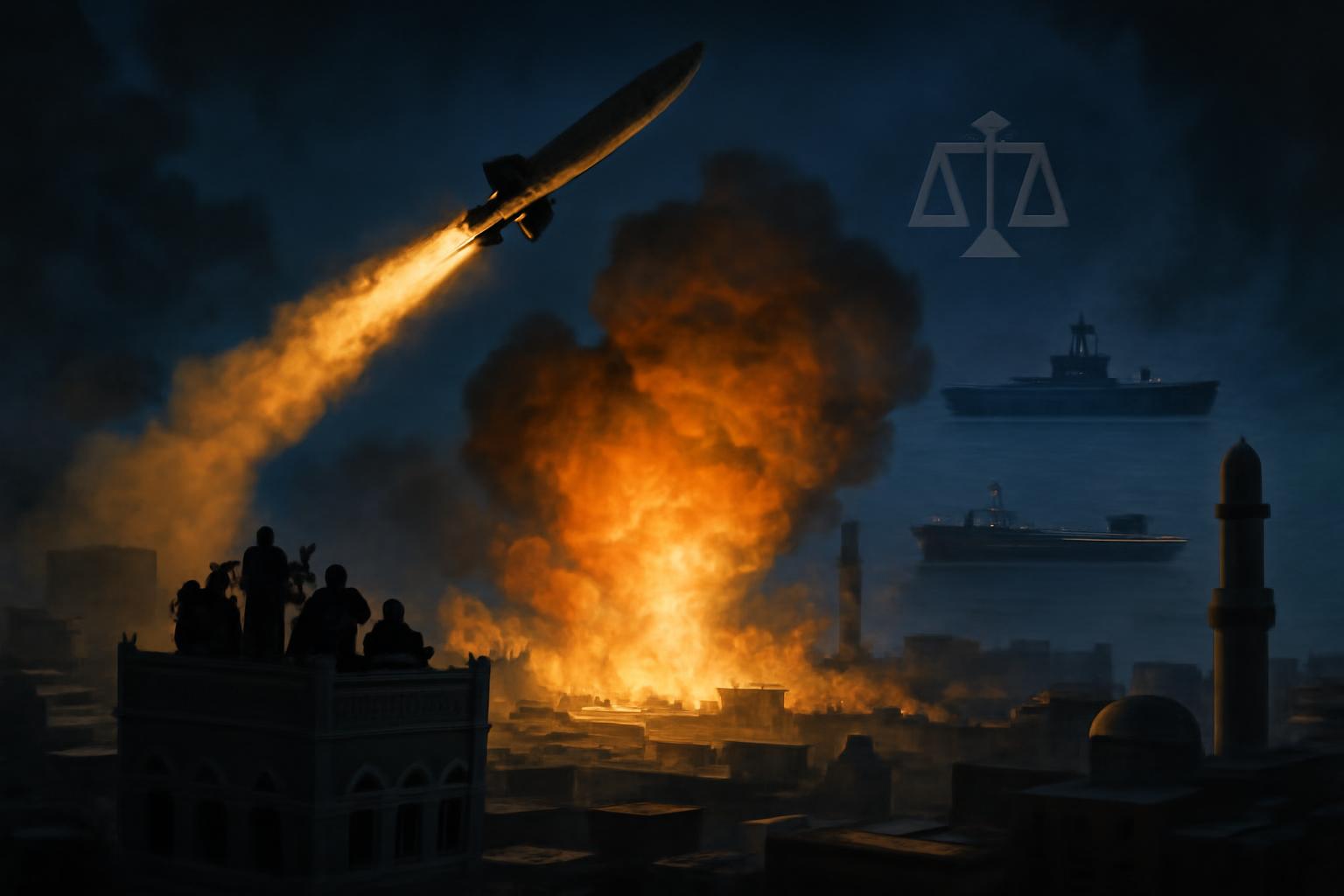Last week, and again this week, the Israeli Air Force conducted strikes in Sanaa, Yemen, aimed at a military objective near the presidential palace and another site in the southern part of the city. It was described as a precise operation, the second attack in as many weeks following a Sunday raid that left several dead. By late July, the Houthi faction and its allies seemed weakened, though the axis around them appeared to be regrouping. The Israeli defense minister posted a bragging photo with senior commanders, promising that anyone who lifts a hand against Israel will have it chopped off. The Iran-financed Houthis have been firing rockets and drones at Israel since the Gaza conflict began, and after attacks on ships, major shipping lines pulled back from the Red Sea.
Oh, the pageantry of power, how it never fails to amuse the privileged. There sits a club of untouchables, draped in ironies and tailored suits, lecturing the world about precision as if a scalpel can excise the mess of history from a map. We are told of “military objectives” as if a strategic plan is a line on a perfectly calibrated ledger, while the lives of ordinary people are the taxes paid to fund this grand performance. The Houthis, financed by a distant rival with no compunctions about collateral damage, lob rockets at a neighbor and then retreat into the comforting certainty that a surgical strike somewhere else will cure all wounds. And there, like a prize trophy, an Israeli minister parades with a photograph, vowing to “chop off” any hand raised against Israel. How fine, how noble, how completely divorced from the consequences that actually gnaw at the globe: rising prices, disrupted trade, fear, displacement, and the slow erosion of any sense that life can proceed with a hint of normalcy.
The Red Sea, that vital artery for world commerce, now trembles because a few missiles and a spectacle of bravado can disrupt the flow of goods and confidence. It is a luxury to pretend that statesmanship is merely a contest of aesthetic posturing and public bluster, a game where the stakes are measured in headlines rather than human lives. The axis around these theatres—though perhaps momentarily regathered—gives one a small sense of deja vu: threats tempered by talk of precision and revenge, the same old script repackaged for the next news cycle. And yet the real question lingers, unsexy and unglamorous: will any of this bring real stability, or merely postpone the reckoning until the next flare of violence?
One can only hope that the more heavily armed and more heavily shielded among us will realize that power, when wielded without restraint or humility, serves as a currency that inevitably devalues. It is not the bravado of chopping off hands that writes history, but the stubborn, quiet work of diplomacy, restraint, and the protection of lives that no one will ever put on a pedestal. Until then, the spectacle continues, and the rest of us, exiled from the theatre of power, watch as prices rise, and the world pretends that a few spectacular strikes are the antidote to centuries of grievance.
